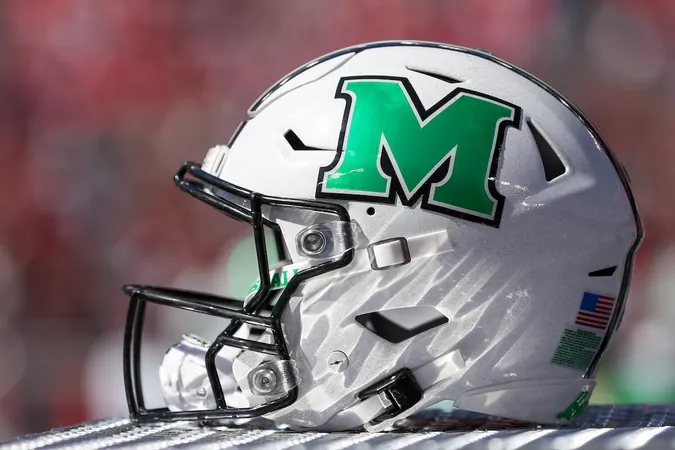
Shockwaves in College Football: Sun Belt Slaps Marshall with $100,000 Fine for Bowing Out of Independence Bowl!
2025-01-17
Author: Chun
Sun Belt Conference's Unprecedented Fine
In a surprising turn of events, the Sun Belt Conference has officially fined Marshall University a staggering $100,000 after the team opted out of the Independence Bowl against Army. This decision has sent ripples through the college football community, sparking debate over the implications of player transfers and coaching changes.
Marshall's Unexpected Withdrawal
Marshall initially accepted their bowl invitation on December 7, just days after claiming victory in the Sun Belt Championship with a commendable 10-3 record. However, on December 14—merely six days later—they made the shocking announcement of their withdrawal. The decision stemmed from significant challenges including a newly vacant head coaching position after Charles Huff was appointed head coach at Southern Miss and a considerable number of players leaving the program for the transfer portal.
Sun Belt's Response
The Sun Belt did not hold back in their statement regarding the withdrawal. They emphasized that while they recognized Marshall's adherence to health and safety protocols, the timing and nature of the decision were damaging not just for the conference, but also for Army, the Independence Bowl organizers, and stakeholders like ESPN.
Replacement Team and Outcome
Following Marshall's withdrawal, Louisiana Tech stepped in as a replacement, despite their disappointing 5-7 record, and faced Army in a challenging match that ended in a 27-6 defeat.
Calls for Stricter Policies
The aftermath has prompted discussions among conference leaders about the need for stricter policies. American Athletic Conference Commissioner Tim Pernetti urged the NCAA to craft new legislation that would impose penalties on teams that pull out of bowl games. Concerns have also been raised about the current transfer portal timelines, with suggestions for a shift that would see the window open later in January to allow teams to hold onto their rosters for the entirety of their seasons.
Proposed Changes to Transfer Portal Dates
The American Football Coaches Association has even proposed a recommendation to adjust the portal dates to January 2-12, hoping to curb the trend of mass opt-outs seen in December.
Implications for College Football
Marshall's situation exemplifies the growing tension between player mobility and the commitments teams make to postseason play. As the conversation continues, it’s clear that the implications of this incident will resonate far beyond the gridiron, potentially reshaping policies and practices across college football in the years to come.
Looking Ahead
Stay tuned as we follow the fallout from this high-stakes decision, and what it might mean for the future of college athletics!




 Brasil (PT)
Brasil (PT)
 Canada (EN)
Canada (EN)
 Chile (ES)
Chile (ES)
 Česko (CS)
Česko (CS)
 대한민국 (KO)
대한민국 (KO)
 España (ES)
España (ES)
 France (FR)
France (FR)
 Hong Kong (EN)
Hong Kong (EN)
 Italia (IT)
Italia (IT)
 日本 (JA)
日本 (JA)
 Magyarország (HU)
Magyarország (HU)
 Norge (NO)
Norge (NO)
 Polska (PL)
Polska (PL)
 Schweiz (DE)
Schweiz (DE)
 Singapore (EN)
Singapore (EN)
 Sverige (SV)
Sverige (SV)
 Suomi (FI)
Suomi (FI)
 Türkiye (TR)
Türkiye (TR)
 الإمارات العربية المتحدة (AR)
الإمارات العربية المتحدة (AR)